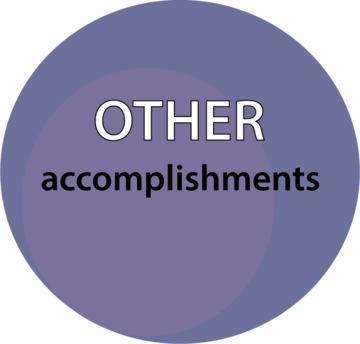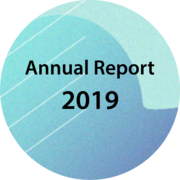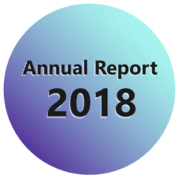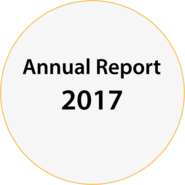Celebrating our 2020 achievements
The work and achievements of Information Systems & Technology are captured in this, 2020 Annual Report. The past year was very busy for IST. The COVID-19 pandemic forced the sudden and unplanned transition of an in-person, on-campus work environment, to a distributed experience, dependent on the ability to connect and collaborate remotely. Much of the work accomplished throughout the year assisted the University community through the digital transformation that occurred to support remote work, teaching, and learning. The main articles that follow highlight some of this work, while other achievements are noted under the "Other accomplishments" section. 2021 promises to be another busy year as we continue our work to deliver exceptional IT services and solutions to the campus community.

Bruce Campbell
Chief Information Officer
Campus Wellness health record system

Introducing Accuro
What is Accuro?
A web-based electronic health record (EHR) system that supports the primary medical care and mental health services needs for University of Waterloo students, Accuro is the new EHR tool for campus and replaces the former Clinic Information System.
Accuro provides a modern, cloud-based system that brings together health care and counselling services in a digital platform that allows an integrated focus on student wellbeing and care.
Students now have more ways to connect with Campus Wellness and experience healthcare support like never before! Accuro also provides practitioners the ability to:
- schedule appointments
- manage labs/imaging
- track referrals
- maintain client charts
- manage medical billing and documentation
Implementation
Accuro went live on August 10, 2020 replacing its 20-year-old predecessor. Campus Wellness continues to roll out new features and services to students, some of which include Ocean (eforms), eFax (Unite Fax), Cliniconex (appointment reminders), Medeo (online booking, virtual healthcare, secure messaging), Accuro eReferrals, Voice Dictation, and Advanced Reports/Dashboards.
The Medeo virtual care platform has been especially important during this time, allowing campus care providers to stay connected with students who need support, even when they are not physically on campus.
Phase 2 of the project began in September 2020 with pilot project planning for student facing technology, such as online booking and kiosks for in-person appointment arrival confirmations. Clinicians will soon benefit from clinical records voice dictation and a mobile app for physicians on-the-go.
The suite of Accuro products continues to evolve with new features that contribute to an overall digital transformation in Campus Wellness services and offerings.
A better experience
- Accuro is an up-to-date EHR with many additional features allowing for better healthcare service delivery
- Medeo (virtual care) allows for safe and “in-person” video discussions providing more personal health care at a distance
- Medeo (secure messaging) allows for better ways to connect with students and share personal health information (e.g. Verification of Illness forms)
- Ocean provides the ability to register for Campus Wellness services using paperless eforms
- Accuro provides tools (traffic manager) with a more efficient way to manage patient flow at the Health Services building
- Cliniconex allows for automated appointment reminders to replace a manual process
- Unite Fax (efaxing) has led to the use of electronic faxes without using paper
- Accuro advanced reporting provides accurate and timely dashboard information on trends and health indicators
What Campus Wellness employees are saying about Accuro

“Ocean (eforms) and Medeo (virtual healthcare) were rolled out, ahead of schedule, because of COVID-19. Not that it should be your standard, but it was quite impressive how quickly that happened, and how smooth of a transition it was for clinicians, and the great support provided to Admin to learn the processes and troubleshoot!”

“Having access to Medeo (virtual care) has allowed me to connect more easily with students, as we’ve been able to see each other’s facial expressions. The set-up process was straightforward for both staff and students. Medeo is a great addition to our options of services to offer student support.”

“The amount of and detailed (Accuro) training, as well as having so many support people to go to, was very helpful in understanding and becoming more comfortable with Accuro. Since the training was started months ago, it helped ease us into understanding the system without feeling rushed. I have no feedback as to how it could have gone better. Given the pandemic, I think the Accuro Team was able to pivot and adjust very well.”
Improving online student processes

Quest: improving the online, self-service experience
When the remaining winter term in-person classes were suspended, and then cancelled, due to the COVID-19 pandemic, modifications and additions needed to be made to functionality within Quest, the student information system. The development also helped to support services typically provided in person, on campus. All changes were designed to be flexible (handling differences between faculties), informative, and allow for future use, if necessary. The Student Information Systems team (SIS), with members from Information Systems & Technology (IST-ERP) and our partners within the Registrar’s Office (RO), Graduate Studies and Postdoctoral Affairs (GSPA), Student Finance (SF), and Centre for Extended Learning (CEL), worked together to implement the following changes.
Credit / No Credit Grade
Undergrad students who felt their grades had been impacted by their inability to complete the term as expected were provided with the option to change their numeric grade to a Credit/No Credit grade. Of the over 25,000 students eligible to do so, over 6,000 students did make changes with 750 later reversing the change.
Convocation Future Participant
A new form was added to allow the students who had completed their degrees to indicate that they would attend a future in-person convocation ceremony. At this time, over 1,900 students have completed this form.
Bursary application
A responsive questionnaire to collect information from students and guide them through applying for financial assistance was built. With the addition of the Academic Bursary, a bursary to help with technical expenses caused by COVID-19, applications for assistance jumped from 300 to over 4,500.
Automating processes to meet demand
Processes, which in the past had little volume and could normally be handled manually, now needed some batch coding assistance to keep up with demand.
Some of these processes included:
- Messages about COVID-19 added to student transcripts
- Modification of Spring term courses as the schedule had already been set
- Changes to handle the increase of applicants deferring to the fall term
- Assistance with helping co-op students register for a full course load because their work term had been cancelled
- Development of a simplified method to handle the production of bulk transcript requests received by the Centre and GSPA
Windows Virtual Desktop (WVD)

Providing remote access to student labs and software
The issue of remote lab access
The campus and building closures, due to COVID-19, meant students were unable to access on-campus labs and software provided by the University. And while it was possible for students to access the hardware remotely, licensing for software did not allow for remote access, and the number of individuals permitted to access/use the software was limited to the number of computers it was deployed on.
The solution? Windows Virtual Desktop (WVD) -- a desktop and application virtualization service that runs on Microsoft's Azure cloud.
Windows Virtual Desktop
With Windows Virtual Desktop, the University can publish as many host pools as needed to fully accommodate diverse workloads. The adaptability and responsiveness of the service also means pools can be deployed and scaled to meet demands within minutes.
The WVD solution is licensed for all University of Waterloo students, removes restrictions on the number of individuals that can access labs/software at one time, and provides anywhere access from any device.
WVD also provides improved, real-time reporting on software use and log ins.
A digital transformation

Supporting campus through a digital transformation
When, in response to the COVID-19 pandemic, the University moved to teaching and learning remotely, the campus community had to quickly adapt the way we worked, learned, and engaged with each other. There was an increased and urgent need for tools and technology to support working in this new, distributed environment. Timelines for the planned investigation, pilot, and implementation of new communication and collaboration tools were accelerated with the goal of ensuring the campus community had access to the tools and training needed to accomplish job duties remotely.
How we're supporting you
- Resources for staying connected and working securely: Staying connected while working remotely, Working from home securely, Teams training sessions
- IT service desk support available via email, phone, and live chat
- Implementation of BeyondTrust, a cross-platform support tool, that provides a better support experience for both staff and the client
- Migration of student and employee email to the 365 Exchange Online environment provided the foundation for the implementation and use of many key collaboration and productivity tools, including Teams, Teams Live Events, and OneDrive
- Store up to 5 TB of data in OneDrive; anytime, anywhere access to files; easily share and collaborate on content with peers
- Migration of campus telephones to the Skype for Business (S4B) softphone client allows individuals to make and receive calls from anywhere, using any connected device
- Use ConsignO Cloud to digitally sign official, legally binding contracts
- Improving ticket and integrated IT service management with Jira Service Management
- Work within IST and with our University partners to build, implement, and maintain Campus Check-In tool
- Expansion of Kanopy Media Streaming service for use in online courses
- Implementation of Windows Virtual Desktop to provide access to on-campus labs and licensed software
- Use of Akindi and Crowdmark for online assessment and grading
In all, we've worked to ensure a more consistent, secure, connected, and user-friendly experience.
Mandatory two-factor authentication

Moving to mandatory two-factor authentication (2FA)
In 2019, IST introduced optional two-factor authentication (2FA) for many campus enterprise systems. Our partners in Finance went a step further, mandating 2FA for student access to sensitive financial information in Quest, while several other University departments mandated 2FA for their employees.
A second layer of protection for University accounts
In June 2020, the project team announced Duo 2FA would be mandatory for identified campus systems for all students and employees. Between June and November, leveraging the guidance and expertise of a University Change Management Advisor, the project team worked to ensure the foundation for supporting such a significant institutional change was in place.
Collaborating closely with campus partners and systems administrators, the team ensured the proper processes, support resources, and training were available. To help spread the word about the impact of this change with our campus community, a "2FA Change Champions" program was established.
Why Change Champions
A Change Champion supports the implementation of a change. Often front-line employees (peers) who are early change adopters, they are well positioned to engage colleagues to increase buy-in and influence adoption across their areas.
The 2FA Change Champions, reaching out directly to clients in their respective area(s), were able to apply a more familiar and personal touch to the information being shared, which data shows clients appreciated and responded to.
With over 70,000 accounts enrolled in Duo 2FA, all active University student and employee accounts are now protected.
Resiliency of Technology Services

Supporting remote teaching
In February, instructional technology groups received a call for help. Instructors who were to teach in China learned they could not travel there and that their students in China would study at home rather than at a local university. So began the pandemic move to emergency remote teaching and formation of the Keep Learning (KL) support groups. IST-ITMS has been involved in many of these groups, such as Leadership, Planning, Website, Communications, and Operations, collaborating even more closely with regular partners, Centre for Teaching Excellence (CTE), Centre for Extended Learning (CEL), and Library, to help adjust content and course activities.
Staying connected
We learned of slow, unreliable connections in China and restrictions on what students there could access. Working with the CIO and IST’s technology integration group (TIS), Waterloo provided Canada’s first use of an internet re-routing solution for those students.
The new KL website also provides tools and technologies pages for all centrally supported platforms. Many tools saw increases in uptake, including the use of LEARN (D2L Brightspace), for which support requests nearly doubled during term peak.
Web conferencing systems were used for live class sessions (where appropriate) and for recordings. WebEx and Bongo session numbers exploded; WebEx grew from typically five virtual meetings per week pre-pandemic, to well over 3,000 per week by early fall.
Adapting to provide continued support
The media production area offered a new service for recording and editing lab work that could no longer happen in person.
To support the fall courses that would be taught in-person, the e-classroom group outfitted four (of 17) Registrar rooms with camera and media mixer devices to allow streaming and or recording of video, computer, document camera, etc.
In the move to remote teaching, the edtech support provided by ITMS helps bridge pedagogical needs to the infrastructure, supporting use of technologies and facilities by instructors, students, and other support areas.
It has been an intense and challenging 10 months for the entire community and ITMS has played a vital role in Waterloo’s continued teaching successes.
Contact us
Questions about our work or feedback about this site? We want to hear from you!

Andrew McAlorum
Director, Client Services






















